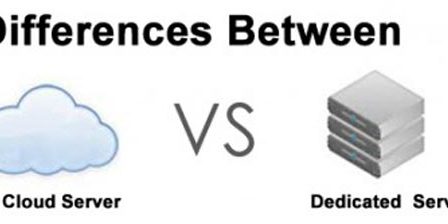Are you tired of paying for traffic and resources you don’t use? Do you need a worry free technology that allows you to increase the capacity and functions of your hosting or server as the traffic, popularity of your site and your requests increase?
If the answer is yes, then cloud server hosting is the perfect solution to your problem.
What is Cloud Server Hosting
The term “Cloud” is used to describe a number of various technological features/products. But at a very basic level, it mainly refers to the evolving demand for virtualized servers accessible over the internet.
Imagine being able to have a server in minutes or update a server automatically or adapt the servers to your needs. That’s the idea behind Cloud servers. Each cloud server is fully customizable giving you root access. The price of a cloud server depends on the size and specifics of the server you purchase.
Based on virtualization technology, cloud servers bring the power of the cloud to the core model of traditional server hosting. Just like a dedicated server, your cloud server provides total flexibility for you to use whatever you want either a web site built with Java or a Ruby on Rails application.
The Cloud server or Grid computing server has become very popular these days as a Software-as-a-Service Web 2.0 solution that is increasingly in demand. Cloud servers can run under different operating systems. Amongst the most popular are the Linux Cloud Server (Debian, Ubuntu) and the Windows Cloud Server.
A cloud server offers the advantages of traditional dedicated servers with cloud hosting. You get dedicated hardware and resources actually allocated to your server with the ability to freely configure it to your needs. Your cloud server gains a whole new level of resilience and redundancy.
To help you understand the meaning of cloud server hosting, we offer answers to some of the most frequently asked questions. Please read below for more information.
What is the difference between a cloud server and a dedicated server?
When purchasing a dedicated server, you must pay an upfront installation fee and commit to a contract for one year or more at a higher minimum price than a cloud server. There is usually a delay in getting the various software and other technical stuffs in place. It is also difficult to change the server specification as your needs evolve, forcing you to purchase a more powerful server to be able to meet the new requirements. You pay for a server that runs 24 hours a day, not just when you want it or when your server actually runs.
On the other hand cloud servers can be deployed immediately, often accompanied by an easy-to-use control panel, at a low cost and without having to commit to a contract. Depending on the variation in the resource requirements, you can instantly adjust them or increase or decrease them. You can thus pay only for the hours and resources actually used.
How do cloud servers differ from virtual private servers (VPS)?
Traditional VPS providers cut large dedicated servers to share between customers. Generally providers use VPS container technology such as Virtuozzo. This allows multiple users to be isolated on a single server from each other while running a single shared instance of the operating system. In contrast, the kernel based virtual machine (KVM) technology used on cloud servers, allows each user to run its own isolated copy of the operating system of their choice. This will enable a wider choice of operating systems, superior performance, more configuration and robust security guarantees.
How a cloud server works and setting it up?
Each cloud server helps perform a particular set of tasks. If one of the cloud servers fails, another server (or servers) temporarily comes to the rescue of the server in question as a back-up to provide the required resources. The same process occurs in the case of overload conditions.
However, the use of poor quality equipment can significantly hamper performance. Such implementations do not deserve to be labelled with the nickname “cloud”.
Choose the size of your cloud server
Cloud computing server sizes are measured based on the amount of physical memory reserved for your instance. The space required is always according to the needs of your site. If you plan to allow your customers to upload files (docs, videos, audio, etc.) to your cloud server, a large amount of Gigabyte space becomes necessary. Don’t worry too much about this as the cloud server solution is scalable and automatically re-adjusts itself as needed.
Selecting operating system
Choose from a variety of popular Linux distributions: Ubuntu, Debian, Gentoo, CentOS, Fedora, Arch and Red Hat Enterprise Linux. Now, it is possible for some hosting providers to have cloud servers under Windows that you can try for free. The choice of an operating system for your cloud server depends mainly on the applications you are going to use. For example, if you intend to work with MSQL databases, a Windows system would be essential.
Your cloud server online in minutes
After completing the purchase of your server, you will receive an email from your hosting provider with all the necessary information to connect to your Cloud server. Each server can be activated and updated through the online control panel and API.
Factors to consider when choosing a cloud server?
The cloud server purchasing decisions for companies (small or large) should be based on the following three factors:
- Cost: How much will it cost?
- Technology: Which configuration / technology is best?
- Host: Which hosting provider is the most reliable and secured?





I read carefully then i understan what actully cloud server hosting is